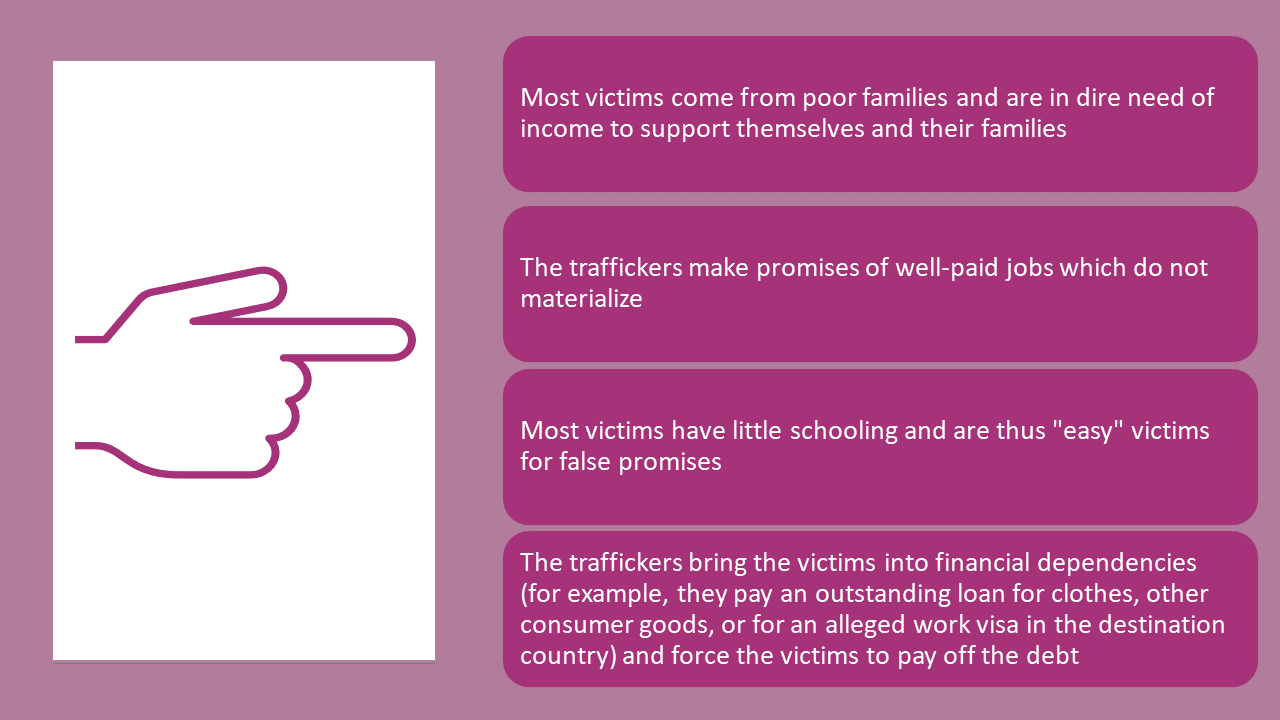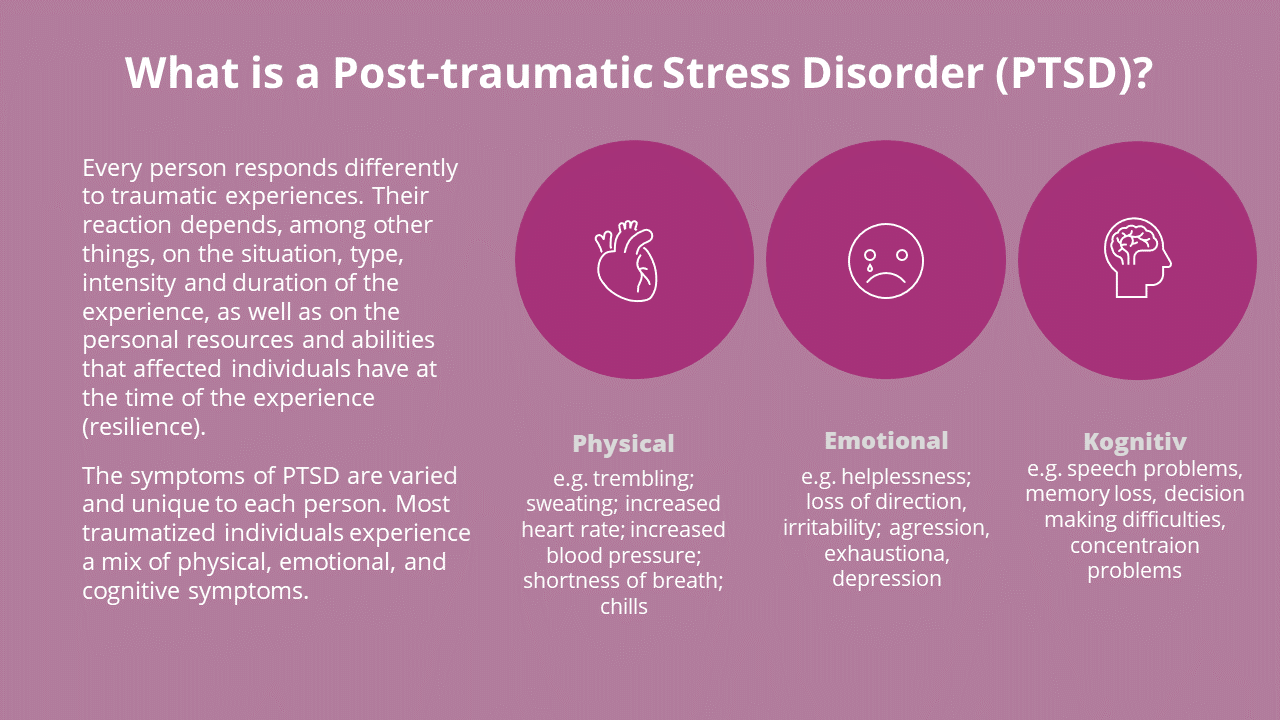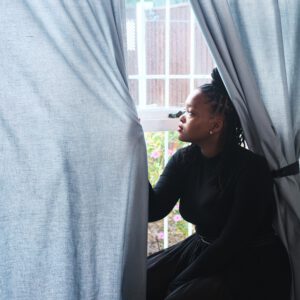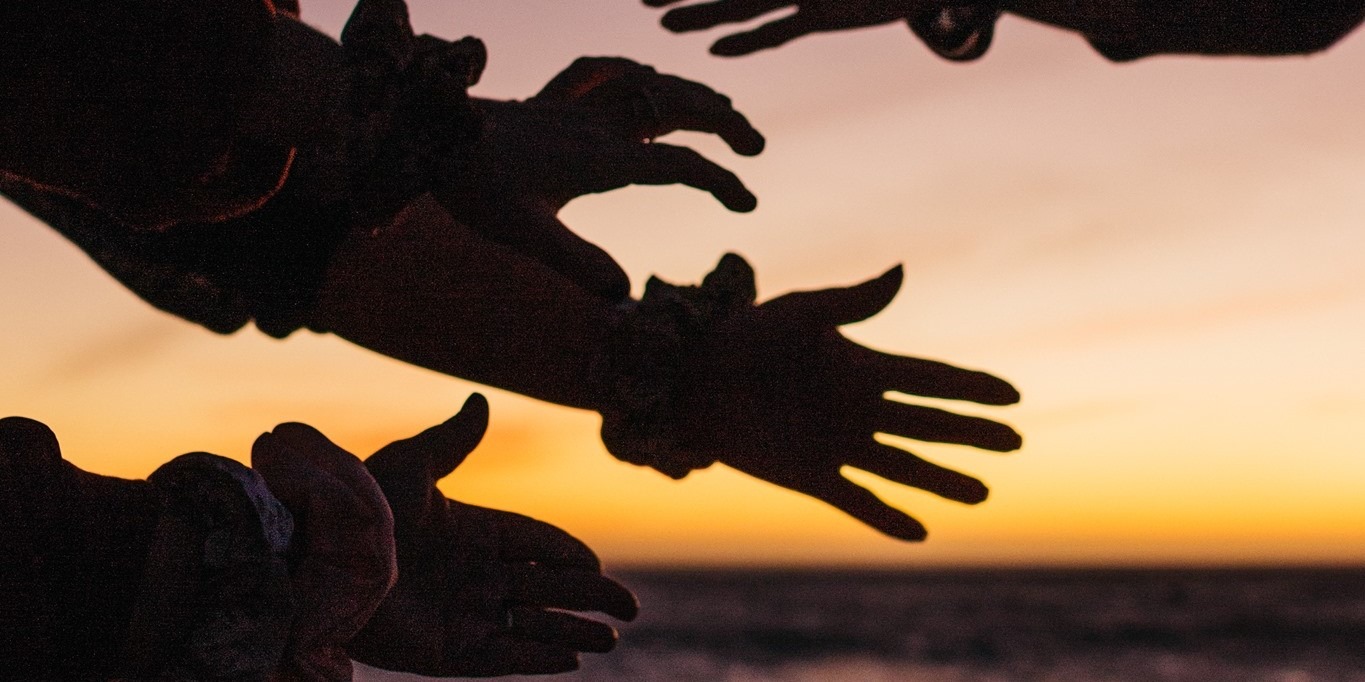
14 Oct Human Trafficking in South Africa
In our blog article “What is human trafficking“, we reported on human trafficking, its different forms and how victims can be recognized. In this article, we share information about human trafficking in South Africa and why women and girls are so vulnerable to sexual exploitation, especially in South Africa. Moreover, we explain the effects on victims and introduce the work of a shelter for victims of sexual exploitation.
South Africa is rightfully proud of its constitution, which is internationally recognized as one of the most progressive in the world. It was adopted in 1996 and had been drafted by the new democratic government after the end of apartheid in collaboration with a large number of civil society organizations, including human rights organizations. The new constitution stipulates equality for all people, regardless of their social, cultural, religious or gender background. The recognition and acceptance of same-sex marriages, for example, attracted much international attention.
A ban of forced labor is also enshrined in the constitution. The Prevention and Combating of Trafficking in Persons Act of 2013 and the National Policy Framework for the Prevention and Combating of Trafficking in Persons (2018) provide both a clear legal framework and a comprehensive strategy to prevent human trafficking in South Africa.
And yet there are many people in South Africa who are victims of human traffickers. Forced prostitution and sexual exploitation is the most common form of trafficking, accounting for almost 55% of all known cases, followed by forced labor at just under 40%. The majority of victims are women and girls (70% of all cases).
South Africa is both a destination country for trafficking victims from other African countries as well as origin and transit country, for being victims trafficked to Europe or North America. In 2017, according to the National Policy Framework, the majority of victims had South African citizenship. Other victims came from Thailand, Ethiopia, Lesotho, Mozambique, Ghana, Nigeria, Bulgaria, Swaziland and Tanzania.
Why do people become victims of human trafficking?
The backgrounds and stories of people affected by human trafficking vary. Counseling centers for trafficked persons point out that there is no such thing as the “typical trafficked person.” Key factors in most stories of trafficking victims in South Africa, however, are:
Effects of human trafficking on victims
Victims of human trafficking are progressively pushed to the margins of society. They are socially isolated by their traffickers so they cannot seek help and their exploitation is not discovered. Victims trafficked in from other countries also have their identification documents and visas confiscated, thus creating additional dependency and exerting pressure on victims. Victims are caught in a trap from which they can hardly escape on their own. Moreover, the damage to health is severe: poor nutrition, denied access to medical care, mistreatment by traffickers or, in the case of sexual exploitation, mistreatment by clients, not only lead to physical illnesses in victims (e.g. infectious, sexually transmitted diseases), but also leave serious psychological wounds (traumas), which in many cases also lead to post-traumatic stress disorder (PTSD).
If post-traumatic stress disorder is not treated by trauma therapy, it can have serious consequences for affected persons and their environment, e.g.:
- Re-experiencing the traumatic situation in the form of images, feelings (flashbacks).
- loss of joy/quality of life
- increasing difficulties in social relationships and inability to build trust with others
- social isolation, withdrawal and loneliness
- Lack of resilience and inability to work, or difficulty in performing as expected at work – thus the danger of slipping back into exploitative conditions is all the greater.
Moreover, as a study of the South African Centre for the Study of Violence and Reconciliation shows, more than 80% of young perpetrators in South Africa have themselves have had a traumatic experience. Treating trauma is hence also import for sustainable violence prevention.
S-Cape – Education NOT Exploitation
A sustainable approach to the rehabilitation of victims of human trafficking
Since 2011, the non-profit organization S-Cape in Cape Town has been supporting female victims of human trafficking in South Africa.
S-Cape works in particular with victims of sexual exploitation and abuse. In addition to operating an accredited shelter S-Cape provides physical, psychological, emotional and spiritual care, as well as a comprehensive educational program.
The rehabilitation program includes 4 essential aspects:
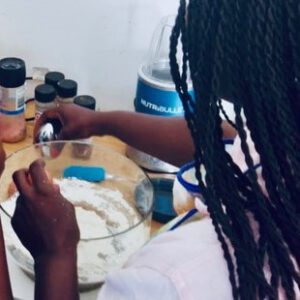
Victims, or rather survivors, are accommodated in the shelter, where they are provided with safe accommodation, food, as well as initial medical care. In addition, victims also receive legal support as well as assistance in dealing with the authorities to retrieve identification documents such as birth certificates and identity documents.
2) Individual Therapy Programme:
: An individual thereapy programm is created for each women. One focus is on helping people process traumatic experiences and treating possible post-traumatic stress disorders. If necessary, speech therapy and physiotherapy programmes are also offered.
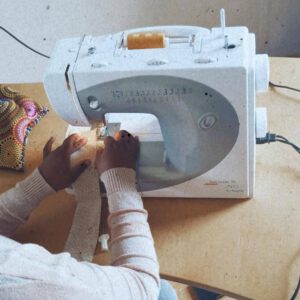
The majority of women have only attended school for a few years and van hardly read, write and calculate. This means that they have little chance of finding fairly paid work. At the same time they remain very vulnerable to dubious job offers. To create the conditions for them to lead a self-determined life, S-Cape offers a comprehensive education programme. Here, girls and women not only learn how to read, write and calculate. Other life skills topics such as health, nutrition and finance are also taught and the women can learn practical skills such as sewing and crafting.
4) Reintegration and Reunification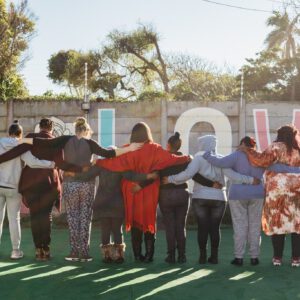
Most women stay in the shelter for 2 to 3 years. In the last year, the focus lies on reintegrating them into society. This includes, for example, helping them to find a job, or reuniting them with their families. Many girls and women who were victims of sexual exploitation were rejected by their families and the S-Cape team helps to build bridges that enable reunification with their families.
Bisher konnte 95 Opfern durch S-Cape geholfen werden.
Support survivors of human trafficking in South Africa!
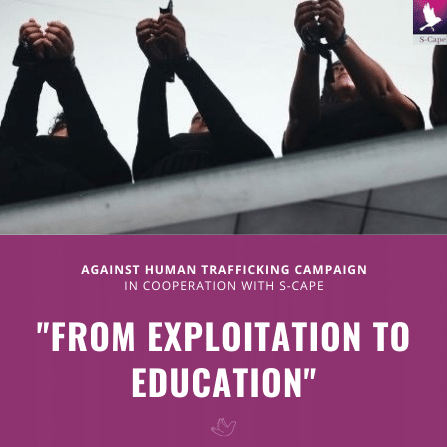
Support our current crowdfunding campaign for S-Cape, a safe-house for victims of human trafficking in Cape Town, South Africa. The shelter offers victims of sexual exploitation in particular a place of protection and supports them in breaking the vicious cycle of poverty, violence and exploitation and empowers them to live a self-determined life. With our campaign we collect donations that will enable S-Cape to strengthen its education programme.
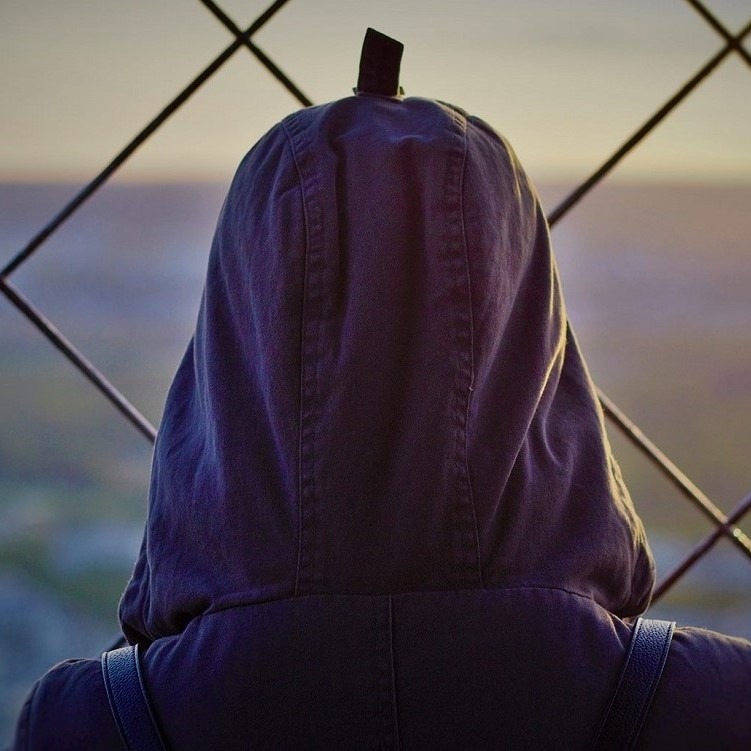
Du möchtest dich im Rahmen eines Freiwilligendienstes oder Praktikums für Opfer von Menschenhandel in Südafrika engagieren?
Would you like to support victims of human trafficking in South Africa as part of a volunteer service or internship?


